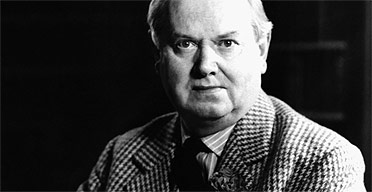This article appeared in Vivid in 2004. Romanians have come a very long way since 2004 and no long ago stopped seeming like children of a larger growth to well-disposed foreigners.
The psychology of nations is not intellectually out of fashion in Romania in the way that it has been for the last sixty years in the West. Romanians, usually their own severest critics, talk at length and often with cruel accuracy about their national character and question the reasons why so much of Romanian society appears to be dysfunctional. On the other hand, foreigners who have the luck to live and work in Romania are often enchanted and exasperated in turn, or simultaneously, by what seems to them a curiously childlike quality in Romanians (in common with other central and eastern Europeans but to a more pronounced degree), even when they are taking part in activities that are far from innocent.
In a superficial sense adolescence is over much more quickly in Romania than in the Anglo-Saxon world where baby boomers squeeze themselves into jeans at sixty. At twenty or twenty-one the Romanian is a young adult earning his living, even if still at university, and surviving in a tough and dangerous world. Older people are treated with respect in a part of the world where the generation gap was never heard of and each generation follows fairly closely in the path of its parents. Important figures in business and politics seem rarely to talk to people under fifty. Yet at a deeper level Romanians seem, at least to outsiders, in some ways children of a larger growth.
One reason is that life in the West changed out of all recognition under the impact of sudden and unprecedented economic growth and technological advance in the fifty year period in which Romania was frozen in time under communism. Life in the West was once much less pressured, slower, simpler, more human and more innocent. Watch a British film from the 1930s or 40s and you will recognise a lot. Bolshevism’s final achievement, while destroying so much that was priceless, was to act as the only conservative force strong enough to put a brake on progress and preserve a traditional way of life which with astonishing rapidity was destroyed forever in the market economies.
But another reason is that for fifty years initiative and freedom of thought inRomania was crushed. And the Communists were only the last and worst in a long line of bad rulers. The Communist tyranny, bear in mind, extended from the central committee to every factory and office in the country. In psychological terms the result is comparable to the trauma inflicted on a child who is not allowed to detach himself from his abusive parents and to mature. He remains a perpetual adolescent. In Jungian terms we can speak of the phenomenon of the puer aeternus, the eternal boy, of whom the classic literary example is Peter Pan, the boy who never grew up.
The psychologist Jeffrey Satinover has described the puer aeternus as “characterized on the one hand by a poor adjustment to quotidian demands, a failure to set stable goals and to make lasting achievements in accord with these goals, yet, on the other hand, it is also characterized by noble idealism, a fertile imagination, spiritual insight and frequently, too, by remarkable talent.” Professor Satinover went on to refer to a “refusal to take the difficult path of adaptation, or work. The grandiose fantasy is preferred to the modest accomplishment.”
If this parallel holds true, Romanians are in a sense perpetual (and fascinating) adolescents traumatised by a disrupted and painful history who dislike and scorn authority, break rules without a qualm of conscience but at the same time are sorely afraid of punishment. Leaders (adults) are idealised and expected to solve all the problems, demonised when they (always) fail to do so. The puer is obsessively interested in how he appears to outsiders because he lacks a solid sense of identity. He is passionate, artistic and warm-hearted but often impractical, passive, shirking responsibility, seeking to shift blame, preferring nostalgia or fantasy to reality on which he has a tenuous grasp.
Such psychoanalytical comparisons are beguiling but should not be pressed too far of course. The puer aeternus is un vrai naïf and here the parallel with Romanians might seem to break down, for Romanians are nothing if not cynical. On the other hand children who are the victims of prolonged abuse become highly suspicious and unable to trust others. Romanians often combine naiveté and cynicism in a way that foreigners don’t easily understand. Maybe that’s the secret of the present Government’s high ratings in the opinion polls.
Romania’s orphans (in fact a misnomer since few of the institutionalised children are orphans) are, entirely due to pressure from opinion abroad, a political story that never goes away. They may well play a large part in postponing Romania’s admission to the European Union. In a front page cartoon in a leading newspaper a weary Romanian complains: ‘Why do they keep talking about orphans? We Romanians are all orphans.’ And so indeed they are. The Romanian-American writer Andrei Codrescu in a speech in 1991 put it this way. ‘Romania is a country of abandoned children, literal children and grown-up children, abandoned by its own leadership, abandoned by the West and psychologically by its own citizens.’
In another sense too Romania is orphaned. Since the demise of Communism other former Soviet colonies have found Western countries to act as economic partners-mentors: Austria supports and invests in Hungary and its other ex-Communist neighbours: the Baltic States and Poland have Scandinavia; even wretched Albania has Italy. The Romanians have no-one, for surely the Greeks and Turks do not fulfil this role. They have only the EU whom Romanians look on as a rich and benevolent distant relative who will adopt them and thereby solve all their problems. Lady Nicholson’s career as a backbencher in the British Parliament was pretty undistinguished but as the European Parliament’s Rapporteur the hectoring style and meddlesomeness which grated in England the 1990s is what Romania now requires. Whether or not she is right in her opposition to foreign adoptions, how statesmanlike and how adult a figure she cuts among the Ministers and officials whom she harries. On balance, how lucky, did they but know it, Romanians are to have her.
Romanians are the enfants terrible of Europe and if they succeed in joining the European Union in 2007 they will do so as the licensed problem children, expected to lag behind the others and embarrass the grown ups. Real children who have been ill-treated and neglected very often grow up to be child abusers. In Romaniagenerations of cynical and self-interested leaders have taught succeeding generations to misuse power. Romanians hope that foreigners, like wise and beneficent grown-ups, will step in to make things better but what is needed to break the cycle is moral regeneration from within. Discouragingly, the only movement in recent Romanian history that sought to achieve this daunting task was the Iron Guard, the pre-war mystical-fascist movement who proposed a cure for corruption worse than the disease.
This article appeared in Vivid in 2004. Romanians have come along way since 2004 and no longer seem like children of a larger growth to well-disposed foreigners.



















